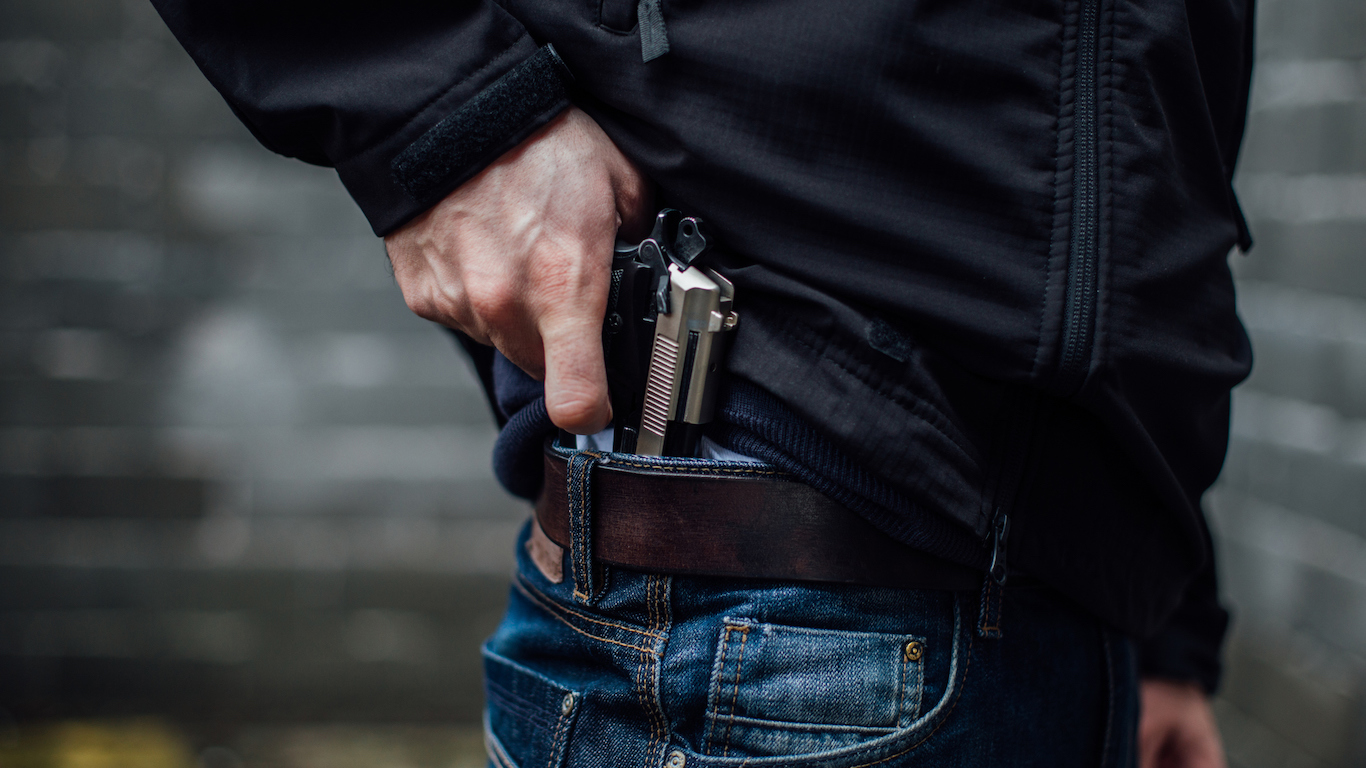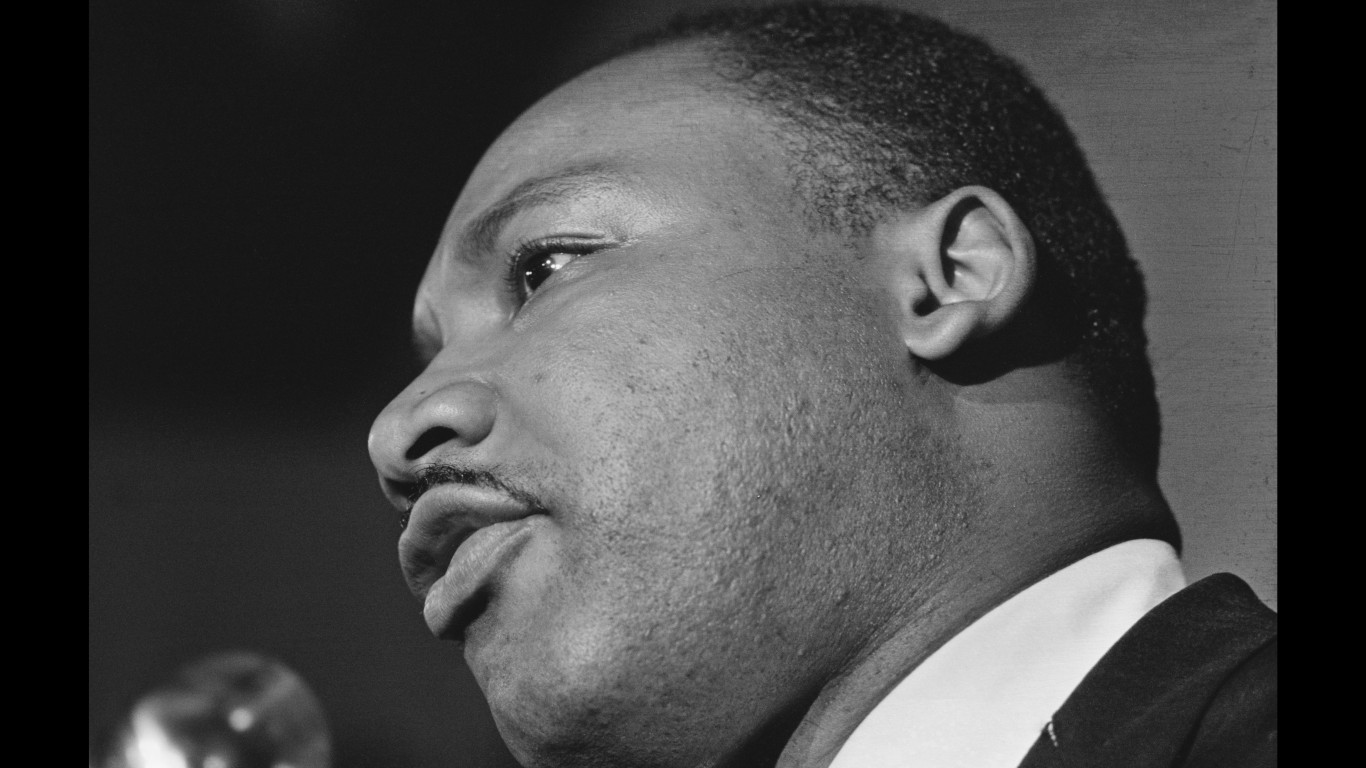
This weekend, there were two mass murders within a few hours of one another. The first was in El Paso, where 20 people were killed in a mall. The second was Dayton, where nine people were killed in an area with a busy nightlife. CBS pointed out that there have been more mass shootings in the United States this year than there have been days.
Private gun ownership in the United States is protected by the Second Amendment of the Constitution. While there are some restrictions to gun ownership that vary by state and city, American citizens are generally guaranteed the right to keep and bear arms.
And many choose to exercise that right.
There are an estimated 393.3 million civilian-held firearms in the United States — or about 121 for every 100 American citizens, the highest gun ownership rate of anywhere in the world. The second-highest gun ownership rate is 52.8 firearms per 100 people in Yemen, a country currently in the throes of civil war.
Unfortunately, America’s gun culture has come at a cost.
While mass shootings regularly grab the attention of the national media, they account for only a sliver of total gun deaths in the United States. The 68 people killed in mass shootings this year make up a fraction of a percent of the 12,509 people killed by guns in 2018. On top of that, an estimated 22,000 people commit suicide with firearms every year.
Across the United States, there were 4.4 firearm deaths for every 100,000 people from the start of 2015 through the end of 2016, according to the Centers for Disease Control and Prevention. Gun violence tends to be concentrated in America’s major cities, as the the firearm death rate in the country’s 50 largest metro areas is 4.9 per 100,000.
Of course, gun violence rates can vary substantially by city. In some of America’s most violent metro areas, firearm death rates are more than double the comparable national rate. Gun violence is included in the FBI’s serious crime report. According to it, these are the most dangerous cities in America. This story originally appeared at 24/7 Wall St. last November.
| Rank | Geography | Firearm homicides: 2015-2016 | Per 100,000 | Firearm suicides: 2015-2016 (age 10+) | Per 100,000 |
|---|---|---|---|---|---|
| .. | United States | 27,392 | 4.4 | 44,950 | 7.7 |
| 1 | New Orleans-Metairie, LA | 404 | 16.6 | 186 | 8.1 |
| 2 | Memphis, TN | 398 | 15 | 183 | 7.9 |
| 3 | Birmingham-Hoover, AL | 275 | 12.6 | 245 | 11.9 |
| 4 | Baltimore-Columbia-Towson, MD | 656 | 12.2 | 239 | 4.6 |
| 5 | St. Louis, MO | 596 | 11.4 | 442 | 8.7 |
| 6 | Milwaukee-Waukesha-West Allis, WI | 267 | 8.9 | 182 | 6.5 |
| 7 | Louisville/Jefferson County, KY | 204 | 8.4 | 259 | 11 |
| 8 | Detroit-Warren-Dearborn, MI | 652 | 8.2 | 554 | 7 |
| 9 | Kansas City, MO | 327 | 8.2 | 375 | 10.4 |
| 10 | Chicago-Naperville-Elgin, IL | 1,527 | 8.1 | 620 | 3.6 |
Gun control has been a controversial topic for years. State and cities have different regulations regarding who can purchase and carry firearms may. Some activists have called for a complete ban on guns. But a recent study has shown that banning weapons are precisely the kind of gun control laws that don’t work.
Methodology
To identify the cities with the most gun violence, 24/7 Wall St. reviewed the number of firearm homicides in America’s 50 largest metro areas from the beginning of 2015 through the end of 2016 for every 100,000 residents. We also reviewed the firearm suicide rate for the same time period. All data came from the Centers for Disease Control and Prevention. For a different point of view,
Get Ready To Retire (Sponsored)
Start by taking a quick retirement quiz from SmartAsset that will match you with up to 3 financial advisors that serve your area and beyond in 5 minutes, or less.
Each advisor has been vetted by SmartAsset and is held to a fiduciary standard to act in your best interests.
Here’s how it works:
1. Answer SmartAsset advisor match quiz
2. Review your pre-screened matches at your leisure. Check out the advisors’ profiles.
3. Speak with advisors at no cost to you. Have an introductory call on the phone or introduction in person and choose whom to work with in the future
Get started right here.
Thank you for reading! Have some feedback for us?
Contact the 24/7 Wall St. editorial team.



